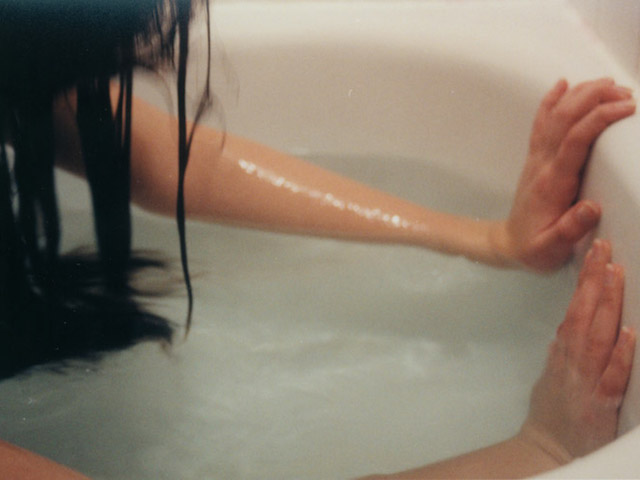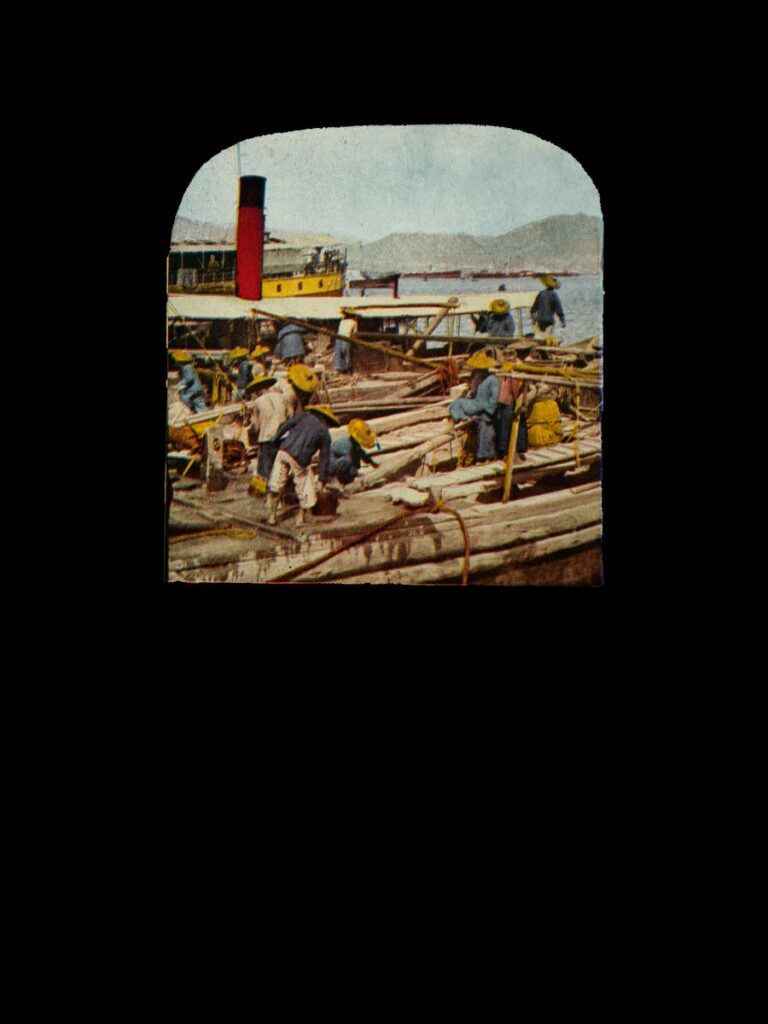My child, we all become white-haired soon enough.

December 27, 2017
 The haenyeo are the free-diving female divers of Jeju Island in South Korea, listed by UNESCO as an Intangible Cultural Heritage of Humanity. “Birth” and “Dance” are the first two parts of Janet Hong’s evocation of this dying tradition, Sea Mothers, written as a collaborative project with photographer Zena Holloway — parts 3 and 4 were published in the summer 2017 issue of Brick.
The haenyeo are the free-diving female divers of Jeju Island in South Korea, listed by UNESCO as an Intangible Cultural Heritage of Humanity. “Birth” and “Dance” are the first two parts of Janet Hong’s evocation of this dying tradition, Sea Mothers, written as a collaborative project with photographer Zena Holloway — parts 3 and 4 were published in the summer 2017 issue of Brick.
Sea Mothers
by Janet Hong
I: Birth
Breath. Knife. Dive. Gum. Pill.
These the first words you lisped, as though the sea needed to mark you, make sure whose you were. Seventeen, you didn’t need the pills for the sickness that eventually grips us all, not yet. Not ever.
You were like an exquisite young fish, wetsuit gleaming like scales, the limits of your lungs untested. A child of the sea. Even to us old-timers, what you were was clear—destined.
I know now the dangers of using a word like “destined.” But then, we only saw how you moved your keen fingers along the jagged rifts, the flash of your sickle, your bright sumbisori whistle as you rose back up to this world.
Beware of bonanzas! An unusually large abalone, an exceptional harvest, can mean only one thing. That day, the same story with you. You collected so much seaweed your friends envied you.
We waited and waited. My entire life passed by on that rocky shore I had walked a thousand times, on the very shore where you, as a baby, had slept in a basket, waiting for the milk from my breasts, milk that tasted of the salty sea, while I shivered in the wind, my hair and cotton mulot dripping.
After the last diver came out and still no sign of you, we thrust our bodies back into the water. We scoured the seabed like ones crazed, finally staggering out into the darkness. The wind whipped us for our empty hands.
It was the next morning you returned to us, on the same waves that had fed and clothed and carried this aging daughter and so many before. Was it then, as you swam in my waters those nine months, that the sea claimed you as its own?
Your orange float nodded at your side, a mute witness to our awful grief, as we untangled the seaweed from your limbs. Who knew you would rise up despite the lead weights? Who knew to look for you on this side of the world?
The winter morning sun lit your motionless body, and you went up in flames, like some mystic bird, rising from the ashes.
II: Dance
We dove with coffins on our backs. We witnessed the drownings of our sisters. We toiled in the underworld and returned to this world with rice, alcohol for our husbands, and notebooks and pencils for our children. We offered up our youth.
On the day you were born, I looked at you and vowed: Never the haenyeo life for you.
So I dressed you in a skirt and blazer, put heels on your feet instead of flippers, scrubbed away the stink of brine from your hair and fingers, erased every trace of dialect from your speech.
But now, far away in your glass tower, you tell me of the dangers. You tell me I must stop, that I must consider my age.
My child, we all become white-haired soon enough. But I’m not surprised. Your entire life I taught you to fear these depths. So I don’t ask: If we don’t go, who will? Who knows the sea the way we do? Who will soothe its awesome waves, appease its capricious moods?
Though you would deny it, I know you still dream of water, of its texture against your skin, sometimes as smooth as tofu and at times inky with rage. I know you still hear the sumbisori, the whistle that pierces your dreams, as unforgettable as the taste of sea urchin, served straight from the spiny shell with a spoon.
Across the water, I hear the chorus of whistles go up, like that ancient siren call. This is all I know. This is all I have. I pull the hood over my white hair and adjust my mask. I enter the water. I am young again.



